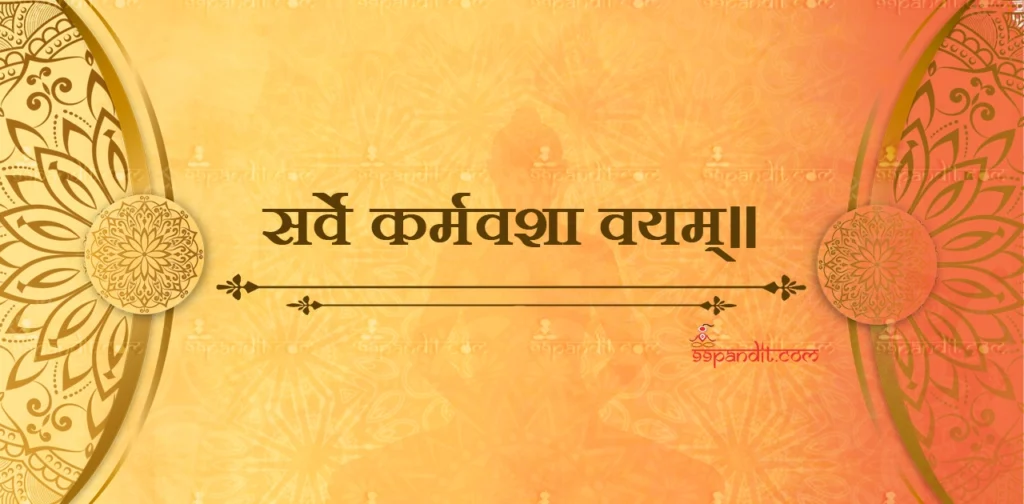Most Popular Sanskrit Quotes In Hindi & English
Introduction
Are you searching for profound Sanskrit quotes that can empower your mind, inspire your soul, and enrich your knowledge about life?
Sanskrit shlokas have a history of more than 10,000 years. Each shloka is defined and refined by thousands of Rishis. Each verse is capable of attracting you to ahimsa, satya, dharma, and self-love. These 10,000-year-old sentences have the capability to change human thoughts in the 21st century.
In the search for AI, we forget the Vedic mantras, but Vedic culture is also equally important for personality development. The rhymes of verses resonate across seven generations. Today, in this article, we are going to provide many life-changing motivational quotes from ancient texts.
Why Sanskrit Shlokas Still Matter Today
Poetic Power with Philosophical Precision
In Sanskrit, a single word can convey a larger meaning. For example, धर्मो रक्षति रक्षितः — this slogan is enough to complete the program of 7 days, which is also called 7 days rituals (Saptaha).
One word can have multiple meanings in different situations. Sentences are simpler for beginners, so Sanskritam shlokas are still popular in the world.
Mantra-Like Effect on the Mind
Chanting shlokas rhythmically calms the nervous system, aligns breath and thought, and sets a focused tone for the day. Their vibration carries as much power as their literal meaning.
To know the effect of chanting mantras, you should read the article “The Sanskrit Effect” written by the American scientist Dr. James Hartzell. The vibration of the language has an impact on matter.

त्वमेव माता च पिता त्वमेव
In Sanskrit
त्वमेव माता च पिता त्वमेव ।
त्वमेव बन्धुश्च सखा त्वमेव ।
त्वमेव विद्या द्रविणम् त्वमेव ।
त्वमेव सर्वम् मम देव देव ॥
You are my mother and father also.
You are my friend and relatives too.
You are my health and wealth both.
My Supreme power, you are my everything.
आप मेरे माता और पिता हैं।
आप मेरे मित्र और रिश्तेदार भी हैं।
आप मेरे स्वास्थ्य और धन दोनों हैं।
मेरी सर्वोच्च शक्ति, आप मेरे सब कुछ हैं।
ॐ सर्वे भवन्तु सुखिनः
In Sanskrit
ॐ सर्वे भवन्तु सुखिनः ।
सर्वे सन्तु निरामयाः ।
सर्वे भद्राणि पश्यन्तु ।
मा कश्चित् दुःख भाग्भवेत् ॥
In English
I wish, all living beings can get their happiness.
All can be free from any disease.
All should live in the best time.
I wish no one to suffer in life.
In Hindi
मैं कामना करता हूं कि सभी जीवित प्राणी अपनी खुशी प्राप्त कर सकें।
सभी किसी भी बीमारी से मुक्त हों।
सभी को सबसे अच्छा समय मिले।
मैं कामना करता हूं कि किसी को भी जीवन में दुख न हो।
विद्यां ददाति विनयं
In Sanskrit
विद्यां ददाति विनयं,
विनयाद् याति पात्रताम् ।
पात्रत्वात् धनमाप्नोति,
धनात् धर्मं ततः सुखम् ॥
In English
Education gives humanity.
By knowing humanity, everyone gets their own values.
By knowing values, getting wealth becomes easier.
By getting wealth, they will use it in productive things and get happiness.
In Hindi
शिक्षा मानवता देती है।
मानवता जानने से हर किसी को उनके अपने मूल्य प्राप्त होते हैं।
मूल्य जानने से धन प्राप्त करना आसान हो जाता है।
धन प्राप्त करने से वे इसे उत्पादक चीजों में उपयोग करेंगे और खुशी प्राप्त करेंगे।
सुखार्थिनः कुतो विद्या
In Sanskrit
सुखार्थिनः कुतो विद्या ।
विद्यार्थिनः कुतः सुखम् ।
सुखार्थी वा त्यजेत्विद्यां ।
विद्यार्थी व त्यजेत् सुखम् ॥
In English
Who desires happiness cannot attain knowledge.
Who desires knowledge cannot get happiness.
So who desires happiness should renounce knowledge and who desires knowledge should renounce happiness.
In Hindi
जो सुख की इच्छा करता है वह ज्ञान प्राप्त नहीं कर सकता।
जो ज्ञान की इच्छा करता है वह सुख प्राप्त नहीं कर सकता।
इसलिए जो सुख की इच्छा करता है उसे ज्ञान का त्याग करना चाहिए और जो ज्ञान की इच्छा करता है उसे सुख का त्याग करना चाहिए।
उद्यमेन हि सिध्यन्ति
In Sanskrit
उद्यमेन हि सिध्यन्ति ।
कार्याणि न मनोरथैः।
न हि सुप्तस्य सिंहस्य ।
प्रविशन्ति मुखे मृगाः॥
In English
We can get success by work, not only by wish.
Just as a deer doesn’t come to a sleeping lion’s mouth automatically.
In Hindi
हम केवल इच्छा से नहीं, काम से सफलता प्राप्त कर सकते हैं।
जैसे एक सोते हुए शेर के मुंह में हिरण स्वचालित रूप से नहीं आता।
येषां न विद्या न तपो न दानं
In Sanskrit
येषां न विद्या न तपो न दानं ।
ज्ञानं न शीलं न गुणो न धर्मः ।
ते मृत्युलोके भुवि भारभूता ।
मनुष्यरूपेण मृगाश्चरन्ति॥
In English
Those who don’t have knowledge nor do charity are a burden to this earth.
In Hindi
जिनके पास ज्ञान नहीं है और न ही वे दान करते हैं, वे इस धरती के लिए बोझ हैं।
चलं वित्तं चलं चित्तं
In Sanskrit
काकः कृष्णः पिकः कृष्णः ।
कः भेदः पिककाकयोः।
वसन्तसमये प्राप्ते ।
काकः काकः पिकः पिकः॥
In English
Crow and cuckoo both are black but in spring, they prove they are not similar by their color.
In Hindi
कौवा और कोयल दोनों काले हैं लेकिन वसंत ऋतु में वे अपने रंग से साबित करते हैं कि वे समान नहीं हैं।
यस्य नास्ति स्वयं प्रज्ञा
In Sanskrit
यस्य नास्ति स्वयं प्रज्ञा ।
शास्त्रं तस्य करोति किं।
लोचनाभ्याम विहीनस्य ।
दर्पणः किं करिष्यति॥
In English
The person who doesn’t have wisdom, scriptures will be meaningless.
Same as who doesn’t have eyes, what can they do with a mirror?
In Hindi
जिस व्यक्ति के पास बुद्धि नहीं है, शास्त्र उसके लिए निरर्थक होंगे।
जैसे जिनके पास आंखें नहीं हैं, वे दर्पण के साथ क्या कर सकते हैं?
चलं वित्तं चलं चित्तं
In Sanskrit
चलं वित्तं चलं चित्तं ।
चले जीवितयौवने।
चलाचलमिदं सर्वं ।
कीर्तियस्य स जीवति॥
In English
Wealth, mind, life, and youth are temporary.
Only a person with a good reputation is permanent.
In Hindi
धन, मन, जीवन और युवावस्था अस्थायी हैं।
केवल एक अच्छे प्रतिष्ठा वाला व्यक्ति स्थायी होता है।
अयं निजः परो वेति
In Sanskrit
अयं निजः परो वेति
गणना लघु चेतसाम् |
उदारचरितानां तु
वसुधैव कुटुम्बकम् |
In English
People who say “This is mine and that is of others” are narrow-minded.
Noble characters take the world as a family.
In Hindi
जो लोग कहते हैं “यह मेरा है और वह दूसरों का है” वे संकीर्ण विचारधारा के हैं।
महान चरित्र दुनिया को एक परिवार के रूप में देखते हैं।
षड् दोषाः पुरुषेणेह
In Sanskrit
षड् दोषाः पुरुषेणेह
हातव्या भूतिमिच्छिता।
निद्रा तन्द्रा भयं क्रोध
आलस्यं दीर्घसूत्रता॥
In English
We should remove these six faults to get happiness:
Sleep, fear, laziness, procrastination, anger, and lethargy.
In Hindi
हमें खुशी प्राप्त करने के लिए इन छह दोषों को दूर करना चाहिए:
नींद, डर, आलस्य, विलंब, क्रोध और सुस्ती।
नमन्ति फलिनो वृक्षाः
In Sanskrit
नमन्ति फलिनो वृक्षाः
नमन्ति गुणिनो जनाः।
शुष्कवृक्षाश्च मूर्खाश्च
न नमन्ति कदाचन॥
In English
Fruit-rich plants and good people bow down but barren trees and foolish people never do that.
In Hindi
फल से समृद्ध पौधे और अच्छे लोग झुकते हैं लेकिन बंजर पेड़ और मूर्ख लोग कभी ऐसा नहीं करते।
यथा चित्तं तथा वाचो
In Sanskrit
यथा चित्तं तथा वाचो
यथा वाचस्तथा क्रिया ।
चित्ते वाचि क्रियायां च
साधूनामेकरूपता ॥
In English
Thought belongs to speech and work belongs to speech.
Virtuous people have consistency in thought, speech, and work.
In Hindi
विचार वाणी के होते हैं और कार्य वाणी के होते हैं।
पुण्यात्माओं में विचार, वाणी और कार्य में एकरूपता होती है।
चन्दनं शीतलं लोके
In Sanskrit
चन्दनं शीतलं लोके
चन्दनादपि चन्द्रमाः |
चन्द्रचन्दनयोर्मध्ये
शीतला साधुसंगतिः ||
In English
Sandalwood is cool, the moon is cooler than sandalwood,
but virtuous company is more superior than sandalwood and the moon.
In Hindi
चंदन ठंडा होता है, चंदन से ज्यादा ठंडा चंद्रमा होता है,
लेकिन साधु संगति चंदन और चंद्रमा से अधिक श्रेष्ठ होती है।
पुस्तकस्था तु या विद्या
In Sanskrit
पुस्तकस्था तु या विद्या,
परहस्तगतं च धनम्।
कार्यकाले समुत्तपन्ने
न सा विद्या न तद् धनम्॥
In English
Knowledge in books and wealth in others’ hands are not useful while taking action in life.
In Hindi
पुस्तकों में विद्या और दूसरों के हाथों में धन जीवन में कार्रवाई करते समय उपयोगी नहीं होते हैं।
ॐ पूर्णमदः पूर्णमिदं
In Sanskrit
ॐ पूर्णमदः पूर्णमिदं
पूर्णात्पूर्णमुदच्यते।
पूर्णस्य पूर्णमादाय
पूर्णमेवावशिष्यते॥
In English
This and that are complete.
Completeness also comes complete.
What remains is also the complete.
In Hindi
यह और वह पूर्ण हैं।
पूर्णता भी पूर्ण आती है।
जो शेष रहता है वह भी पूर्ण है।
प्रदोषे दीपकः चन्द्रः
In Sanskrit
प्रदोषे दीपकः चन्द्रः,
प्रभाते दीपकः रविः ।
त्रैलोक्ये दीपकः धर्मः,
सुपुत्रः कुलदीपकः॥
In English
In the morning, the sun is light,
in the evening, the moon is considered as light.
In the three worlds, righteousness is light,
but in a family, a good son is considered as light.
In Hindi
सुबह में सूर्य प्रकाश है,
शाम में चंद्रमा प्रकाश माना जाता है।
तीनों लोकों में धर्म प्रकाश है,
लेकिन एक परिवार में एक अच्छा पुत्र प्रकाश माना जाता है।
सत्यं ब्रूयात् प्रियं ब्रूयात्
In Sanskrit
सत्यं ब्रूयात् प्रियं ब्रूयात् ,
न ब्रूयात् सत्यम् अप्रियम् ।
प्रियं च नानृतम् ब्रूयात् ,
एष धर्मः सनातन: ॥
In English
Speak true words in a right way.
Don’t speak bitter truth words in a harsh way.
Also, don’t speak false words in a sweet way.
This is what religion says.
In Hindi
सत्य शब्दों को सही तरीके से बोलें।
कड़वे सत्य शब्दों को कठोर तरीके से न बोलें।
साथ ही झूठे शब्दों को मीठे तरीके से न बोलें।
धर्म यही कहता है।
How to Use Shlokas for Real-Life Transformation
- Morning Routine
Chant “Om” mantra, “Gayatri Mantra,” and other verses on a daily basis. - Journaling
Write your experiences through social media. - Yoga/Meditation
Try to chant lam, ham, bam, rum, om, etc., while meditating, which vibrates your nadis.
Common Mistakes to Avoid
- Skimming Meaning
Try to remember the verses even though you don’t know the meaning. Because you need not know the meaning to get advantages from it. - Wrong Pronunciation
Wrong pronunciation never gives a good result, so try to chant correctly. - Overloading
Don’t start with many shlokas in one day. Start from simple verses like Om, Lam, etc.
Conclusion
The Hindi and English translations connect the ancient with the modern and make it accessible to everyone.
We hope this collection kindles an additional interest in you to read more of Sanskrit literature. Use these quotes as your daily dose of inspiration and spiritual power as you




